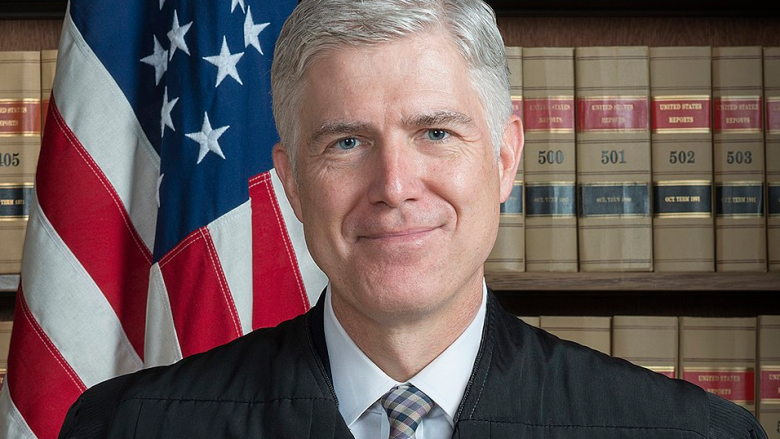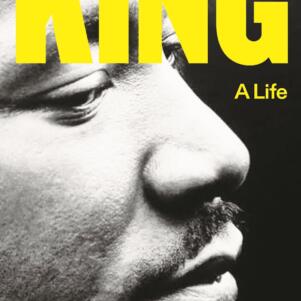Another Republican Judicial Fumble — And How To Get Justice on the Supreme Court
By Joseph Tortelli | June 23, 2020, 8:08 EDT
 Neil Gorsuch
Neil Gorsuch In the most indelible statement of his presidency, Bill Clinton said, “It depends on what the meaning of the word ‘is’ is.”
In that succinct sentence, Clinton unintentionally summed up the ambiguity of the legal philosophy called textualism. Textualism has long been thought to be a twin to originalism, an intellectually rigorous means of limiting judicial activism and radical innovation from the bench.
Well, that’s what textualism was. Not what it “is.” In the dexterous hands of Justice Neil Gorsuch, previously considered a conservative, Chief Justice John Roberts, a conservative who “grew” into a moderate, and four progressive Democrat justices, textualism has morphed into something quite undefinable.
Rather than the two-letter word “is,” the three-letter “sex” gave Gorsuch, Roberts, and their liberal allies room to uncover neoteric meanings that would have shocked the 520 members of Congress who voted for or against the Civil Rights Act of 1964. Such presumption would certainly have baffled and stunned President Lyndon Johnson, the intimidating Texas Democrat who famously twisted arms to assure passage of the bill into law.
One shudders to think what sort of linguistic gymnastics Gorsuch and company will perform when they get their hands on a multi-syllable word.
At his confirmation hearing in 2017, Gorsuch was expected to be so conservative that Democrats filibustered his nomination by President Donald Trump. Republican Senate Majority Leader Mitch McConnell then invoked the so-called “nuclear option” that effectively ended Senate filibusters of Supreme Court nominees. A Republican Senate thereby ended a longstanding tradition in order to elevate Gorsuch to the Supreme Court, so significant was he considered to the conservative cause. And when the final confirmation vote came, every Republican senator voted affirmative, while 45 liberal Democrats voted against Gorsuch.
One can only speculate about how many votes on both sides might flip around following Gorsuch’s radical exploitation of textualism to reach the Bostock decision redefining Title VII of the Civil Rights Act of 1964.
Although at times inconsistent in certain matters of governance, President Trump has unswervingly carried out his pledge to nominate conservative judges to the federal bench. He has prudently assigned the task of vetting those nominees’ qualifications and judicial philosophy to knowledgeable advisors, most prominently Leonard Leo of The Federalist Society. In theory, this should have worked out flawlessly; what an effective plan to usher conservative balance into the courts after generations of liberal dominance.
Alas, judicial philosophy is apparently an inadequate guide to how Republican-nominated judges will decide controversial cases. Whether defined as strict constructionists or conservatives or originalists or textualists, some GOP-nominated justices inexorably veer to the Left once they are safely ensconced in the highest court.
Liberal Democrats don’t share this liability. They are not interested in judicial philosophy. Liberals demand concrete results. That’s why the four-justice liberal Democrat block on the Supreme Court always hangs together on sweeping decisions. They never give an inch on issues of vital importance to the progressive political class.
Democrat presidents nominate judges who are consequentialists; they demand particular concrete outcomes without respect to any abstruse, overarching legal philosophy. A good example of this is found in abortion and Roe v. Wade. In the coming election, presumptive Democrat presidential nominee Joe Biden has the unequivocal support of Planned Parenthood. His fealty to that organization guarantees the most pro-abortion judicial nominees in American history. In a nutshell, Biden is results-oriented; his judicial nominees will bolster and expand Roe, thus assuring abortion on-demand across the nation for generations to come.
By way of contrast, apparently neither Trump nor the Federalists’ Leonard Leo felt comfortable asking Gorsuch about overturning Roe v. Wade, even though that is the only reliable indicator of whether a justice will be liberal or conservative. Presumably, Leo never asked the nominee for a philosophical discourse on the meaning of the word “sex” either.
Likely neither did Leo, a Catholic living out his faith in his admirable family life, discuss religion with Gorsuch. The justice, as the anemic saying goes, “was raised” a Catholic. Apparently after marrying an Anglican while he was studying in England, Gorsuch chose to stop attending Catholic Mass, and instead worship in the Church of England. In addition to profound theological differences, most recent disagreements between the Catholic Church and Anglican Communion have centered on abortion, birth control, sexuality, and marriage. In contemporary language, the Catholic Church holds to traditional or conservative teaching, while the Anglican Church adapts to the modernist or progressive culture.
After Gorsuch was nominated to the court, CNN reported about his “complicated” religious situation. According to religion editor Daniel Burke, Gorsuch and his family worship “at St. John’s Episcopal Church in Boulder, Colorado. Like the city, the congregation is politically liberal. It bars guns from its campus and installed solar panels; it condemns harsh rhetoric about Muslims and welcomes gays and lesbians. Its rector, the Rev. Susan Springer, attended the Women’s March in Denver.”
The Episcopal News Service added, “News articles at the time of Gorsuch’s nomination to the U.S. Supreme Court noted that he, his wife and their two daughters regularly attended services at St. John’s Episcopal Church in Boulder, Colorado, which The Washington Post described as ‘a notably liberal church.’ ”
Seemingly, this progressive religious realignment never became a matter for discussion among conservatives, who enthusiastically backed Gorsuch’s nomination. Now, it’s true that the United States Constitution forbids a religious test “as a Qualification to any Office or public Trust under the United States.” This wise provision does not prohibit voters from taking a candidate’s religion or lack thereof into account, nor does it prevent presidents from considering such factors in politically-charged nominations.
For example: If elected, President Joe Biden is not about to nominate anyone for the judiciary who regularly attends services at a Bible-believing pro-life Evangelical church or who fulfills the Sunday obligation at Latin Mass in a traditional Catholic parish. Rather than contravening the Constitution, Biden would simply be concluding quite reasonably that he could never find a pro-abortion ideological soulmate among such worshippers.
Instead of taking the measure of the whole person, Republicans have focused exclusively on a potential nominee’s judicial philosophy. Frequently, the nominees-turned-judges have given them reason to regret it. One might think that conservatives could intuit that philosophy, isolated from one’s life, does not adequately measure a person’s strengths and weaknesses.
A legalistic philosophy offers little defense against the onslaught of the liberal media, the embarrassment of being unwelcome at the soirees of the best and the brightest, or the seduction of praise from the most prestigious institutions. There’s nothing easier for Ivy League lawyers with agile minds than adjusting their philosophy to achieve a desired outcome that finds favor with their leftist colleagues, the intellectual elite, the media establishment, and the wine-and-cheese smart set at whose parties they will be flattered. And yes, to receive approbation from the congregants with whom they pray and socialize.
Conservatives emphasize philosophy because in moral thinking they strongly oppose pragmatism, utilitarianism, and consequentialism. Essentially, in conservative moral philosophy, the ends can never justify the means. Taking this admonition seriously, gives a person a worthy way to live life.
Unfortunately, the federal courts are not high-minded ivory tower discussion groups. They have developed into a hard-nosed, rough-and-tumble political branch which often exerts more power over domestic issues and everyday life than do the executive or legislative branches of the federal government.
In the world of a highly politicized judiciary, liberals have understood since the 1960s that outcomes matter. It’s time for conservatives start playing by the same rules.
To paraphrase a bit of wisdom popularized by football coach Vince Lombardi regarding results on the gridiron: “In the judiciary, winning isn’t everything; it’s the only thing.”
Joseph Tortelli is a freelance writer. Read other columns by Mr. Tortelli here.











